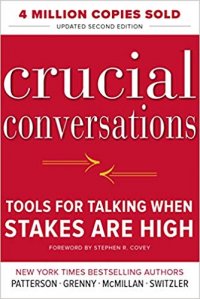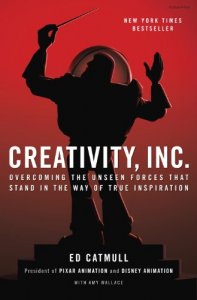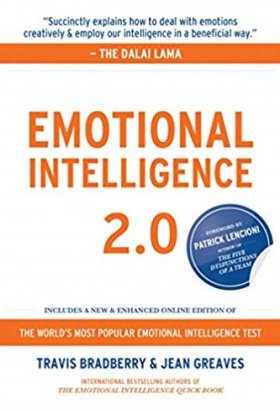You may also like

Crucial Conversations
by Patterson, Grenny, McMillan, and Switzler
Creativity, Inc.
by Ed Catmull & Amy Wallace






by Travis Bradberry & Jean Greaves
Most of us have heard of the StrengthsFinder assessment – a fast-paced question set used to help us identify what we do best as individuals– but did you know there’s a similar test that assesses your strengths and opportunities in emotional intelligence (EQ)? The authors of Emotional Intelligence 2.0 contend that emotional intelligence is the strongest predictor of workplace performance, citing that 90% of high-performers and only 20% of low-performers are high in EQ. EQ is measured into two categories, each with two skills. In order to recognize your current state and be able to improve your comprehensive EQ, it’s important to understand each skill:
Self-awareness is the ability to understand our own emotions and how we tend to react in situations. This is the foundational skill of EQ because it enables the use and improvement of other EQ skills. Fortunately, just taking the time to self-reflect is the main method to improve this skill. Self-management is the ability of using our own self-awareness skill to modify our behavior for the better. Those that are strong in self-management make calculated decisions and choose how to react rather than reacting impulsively.
Social awareness is the ability to recognize how others are responding to their situations and then understand why they react in that way. This is mostly performed by listening and observing others, which is difficult for most of us because we are usually too busy reacting ourselves. It takes a lot of practice to really watch people in our daily interactions. Relationship management is the ability to combine the previous three skills to create the relationships we desire. By identifying our own feelings, managing how we respond to situations, and understanding how others feel and respond, we can build up our relationships.
The authors go into much more detail on each of the skills and then describe how you can build a plan to meet your EQ goals. It then gives 15-20 specific actions for each skill that you can then perform to improve the skill you choose to focus on. Even if you don’t take the assessment to learn exactly where you fall on the EQ skill spectrums, just learning more about EQ helps to improve it.


